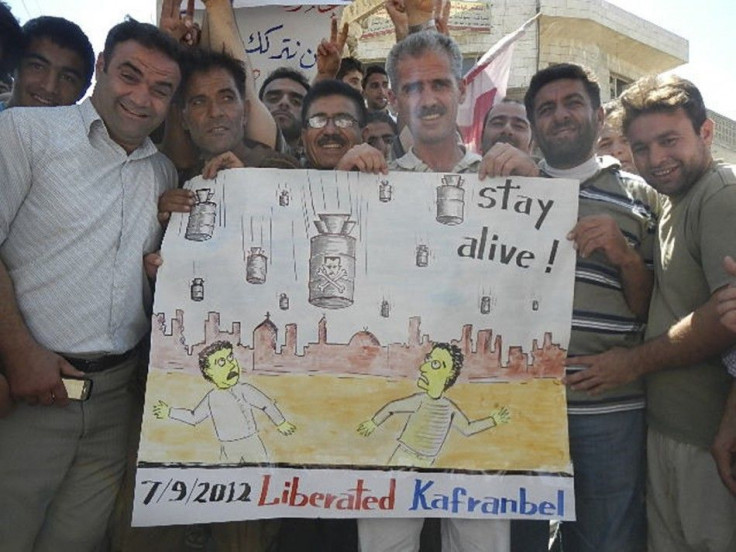Assad's List Of Allies Grows Thin As His Enemies Gear Up

The dance of nations around Syria just got more complicated. Iran is officially sticking its own guns into Syria's bloody civil war, and France may be about to do the same -- but for the other side.
The Iranian government announced on Thursday that it will be sending 150 senior Revolutionary Guards to aid President Bashar al-Assad's army, according to the Telegraph, who also reported that Iran has shipped "hundreds of tons of military equipment, including guns, rockets, and shells" to Syria.
Syria and Iran are close allies; Syria sided with Iran during the latter's war with Iraq in the 80's. As usual, Iran has laid the blame on Israel and the US for inciting the violence in Syria in the first place.
"The main and behind-the-scenes operators behind the painful issues in Syria are America and the Zionist regime," Iran's Supreme Leader, Ayatollah Ali Khamenei, said in a meeting with Syrian Prime Minister Wael al-Halaqi during the Non-Aligned Movement summit in Tehran last month, according to the AP. "The main operators in the Syrian issue are those who have been flooding weapons into Syria and financially backing the irresponsible groups."
In response to the announcement of Iran's military support for Syria, Canada announced on Friday that it was shutting its embassy in Tehran. Iranian diplomats in Canada have five days to leave and have been declared personae non gratae.
Indeed, Assad's detractors seems to be gaining steam: France, one of the Syrian Free Army's foremost cheerleaders, announced this week that it is committing cash to rebel-held cities such as Aleppo, and will help restore water supplies and rebuild schools and infrastructure.
Rumors also have it that France is also close to sending anti-aircraft guns and artillery, but is holding off on outright arming the rebels unless there is an international agreement authorizing it.
Meanwhile, at the Non-Aligned Movement summit, Egyptian President Mohammed Morsi publicly called for Assad to step aside, and the Syrian Foreign Minister in attendance walked out.
In June, Turkish prime minister Recep Tayyip Erdogan said that Syria, Turkey's former ally, is "a clear and present threat." After a Turkish fighter jet was shot down by Syria and the two pilots went missing, Erdogan told the AFP, "the rules of engagement of the Turkish Armed Forces have changed given this new development," and that Turkey would retaliate "with determination" against Assad. On Thursday, Israeli outlet Debka said that Turkish officers were in command of Syrian rebel brigades.
The now 18-month conflict has killed close to 25,000 Syrians, and displaced an estimated 1.5 million civilians. On Friday, Turkey said that there is a 10,000-person strong backlog of Syrians trying to cross the Turkish border. Turkey has already taken in upwards of Syrian 80,000 refugees, and has capped the number it is willing to take at 100,000. The UN also annouced on Friday that it is stepping up relief operations for the displaced, and pouring a total of $41.7 million into the operations.
© Copyright IBTimes 2024. All rights reserved.






















